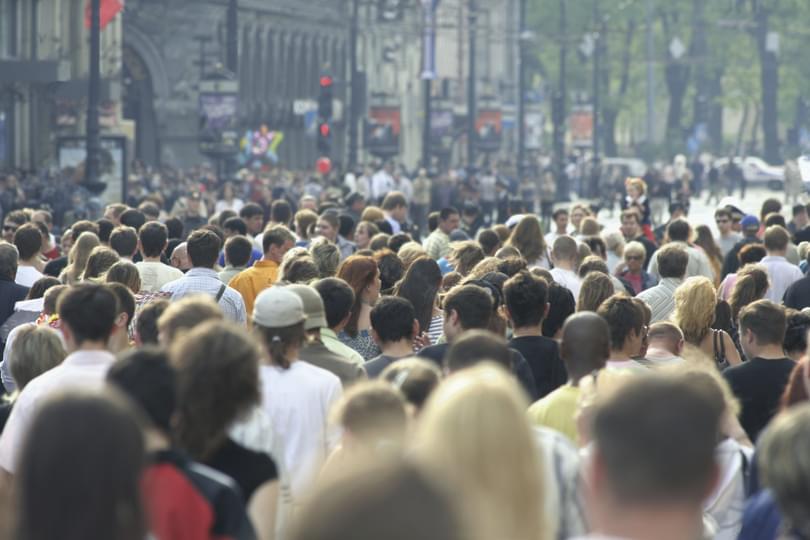
Last month the International Migration Institute, Oxford, and PRIO, Oslo, convened an international workshop on ‘Aspirations and Capabilities in Migration Processes’. The workshop aimed to explore how we can increase our understanding of migration processes by considering migration as a function of aspirations and capabilities. At the heart of the discussion were the questions: where does the desire to migrate come from and what makes it possible to achieve that desire?
Polls around the globe have shown that more than ever before people want mobility – that is the possibility for themselves and their children to live, study and work in places other than where they were born. This trend of an increasing desire for mobility is partly reflected by a continuous increase in the number of people willing and able to exercise their freedom for mobility.
The rising number of internationally mobile populations has been associated with the idea that people’s migration aspirations and capabilities determine the decision to migrate. Migration aspirations refer to a person’s view of migration as a desirable life project.For some, of course, it is a glamorous dream about affluent life-styles, for others migration is rather the lesser of two evils. Usually migration has no intrinsic value but is an instrumental means towards a higher end. Migration capabilities refer to people’s power to realise their migration aspirations. Capabilities are usually constrained by regulations and people’s access to social, cultural and human resources, while aspirations are strongly dependent on information, perceptions and value systems, and thus, they are not necessarily the same within or across societies or constant over time.
As an increasing number of people worldwide gain access to financial, educational, or social resources that are necessary migration capabilities, people can increasingly realise their international migration aspirations. While people in the past were largely unaware of better opportunities elsewhere, they now have an imagination about the ‘good’ life. Mass media coverage of Western lifestyles and successful role models have created feelings of personal and collective relative deprivation. This combined with higher levels of education and individualisation of the social world has increased people’s ‘capacity-to-aspire’ (Appadurai 2004), and their ability to imagine a better and brighter future than the current living millions of people manage to eke out around the globe.
Understanding international migration therefore requires an understanding of people’s desires for these ‘higher ends’ – that is the various life projects people aim for and the role mobility plays in the realisation of these life projects.
The capacity to aspire and to realise migration are necessary conditions for an individual to be considered a ‘potential migrant’. However, even if individuals have access to economic, social and human resources as well as the imaginative desire or aspiration to live a life that partakes in the pleasures of the ‘globalised’ world, people may never migrate if accessible opportunities do not arise elsewhere - or if they arise in the place where they are living. Increasing awareness about new, interesting and achievable opportunities somewhere for realising higher life goals may increase people willingness to move. The question is therefore, does globalisation and development bring opportunities to people or do people have to come to the opportunities?
People aspire to have better lives, but most commonly where their friends and family live and in the culture and society they are familiar with. People want to enjoy the freedom of mobility, without facing the necessity to migrate. However, the world will see more migration in the future if the imbalance between the access to information about better lives and the access to better lives is sustained. .jpg) If globalisation (and the powerful players influencing it) does not provide access for all people around the globe to live the lives they have reason to value (Sen 1999), but only fuel people’s desires for these lives, it may either spur aspirations to realise better lives elsewhere, or if these desires remain continuously unmet, trigger stagnation, resignation, and possibly, social unrest. Aspirations are a powerful source for social, political and economic change, which if directed into the right channels, can bring opportunities to millions of people who desire and deserve better futures.
If globalisation (and the powerful players influencing it) does not provide access for all people around the globe to live the lives they have reason to value (Sen 1999), but only fuel people’s desires for these lives, it may either spur aspirations to realise better lives elsewhere, or if these desires remain continuously unmet, trigger stagnation, resignation, and possibly, social unrest. Aspirations are a powerful source for social, political and economic change, which if directed into the right channels, can bring opportunities to millions of people who desire and deserve better futures.
- Read a working paper Migration as cause and consequence of aspirations by Mathias Czaika
- More about the work of the International Migration Institute
This opinion piece reflects the views of the author, and does not necessarily reflect the position of the Oxford Martin School or the University of Oxford. Any errors or omissions are those of the author.
